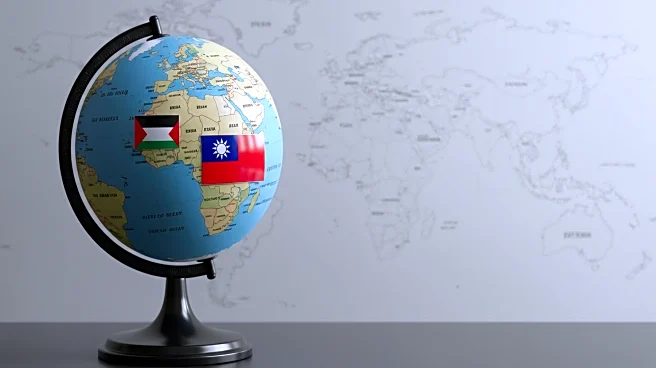What's Happening?
Vincent C. Chen, a telecommunications consultant, criticizes Western democracies for recognizing Palestine while Taiwan remains unrecognized despite meeting criteria for statehood. Taiwan, a democratic state with a vibrant economy and international contributions, is excluded from the U.N. system due to fears of economic retaliation from China. Chen argues that this diplomatic stance undermines the rules-based international order and could lead to tragic miscalculations regarding Taiwan's security. Taiwan's strategic importance is highlighted by its role in semiconductor production, essential for global technology and economic stability.
Why It's Important?
The recognition disparity between Palestine and Taiwan raises questions about the consistency of Western foreign policy and its implications for international relations. Taiwan's exclusion from formal recognition could weaken global efforts to deter potential aggression from China. The reliance on Taiwanese semiconductors underscores the island's critical role in maintaining technological and economic stability worldwide. The situation challenges Western democracies to balance diplomatic relations with China while upholding principles of democracy and international law.
Beyond the Headlines
The issue reflects broader geopolitical tensions between China and the West, with Taiwan's status serving as a focal point for international diplomacy. The lack of recognition for Taiwan may embolden China's territorial ambitions, affecting regional security dynamics. The situation also highlights ethical considerations regarding the prioritization of economic interests over democratic values. As global reliance on Taiwanese technology grows, the need for a coherent and principled approach to Taiwan's recognition becomes increasingly urgent.









